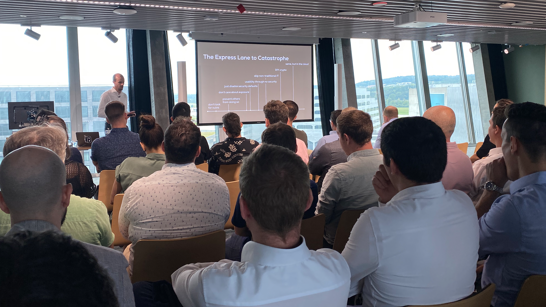AI Revolution in Cybersecurity

Join Alberto Barrado Jiménez, the author of this blog who recently shared his insights at the EMPOWER conference. Discover how Artificial Intelligence is revolutionizing Security Operations Centers, enhancing threat detection, and reshaping the future of cybersecurity.
Transforming Security Operations Centers
They stand as the first line of defense against highly trained, professionalized cybercriminals supported by organized crime or nation-states. The primary mission of SOCs is to detect, investigate, and respond to security incidents, using intensive monitoring and analysis of alerts generated by various tools. However, a significant transformation is underway as Artificial Intelligence in Security Operations, or AI-SecOps, reshapes the SOC landscape.
AI-SecOps represents the convergence of artificial intelligence and cybersecurity, enhancing human expertise with advanced analytics. It enables proactive threat detection, rapid incident response, and intelligent decision-making, revolutionizing traditional SOC practices. However, it's worth noting that AI can be used by malicious actors to adapt threats to security strategies.
Opportunities and Challenges
Navigating the AI-Driven SOC Landscape
The integration of AI into SOCs offers benefits like improved efficiency, faster response times, enhanced accuracy, scalability, and continuous learning. However, it also poses challenges related to data privacy, threats to AI systems, transparency, human expertise, and regulatory compliance. The emergence of AI in SOCs has significant implications for the future. While it promises enhanced security, it also raises concerns about the potential for misuse by cybercriminals. It's crucial for the tech community to stay vigilant in this evolving landscape.
Microsoft's AI-Driven Cybersecurity
In conclusion, the future of cybersecurity is undeniably intertwined with AI. While it presents both opportunities and challenges, it's a journey worth embarking on. We encourage you to explore how AI can strengthen your security operations centre and share your thoughts with our expert, Alberto. Together, we can shape a more secure digital landscape.



